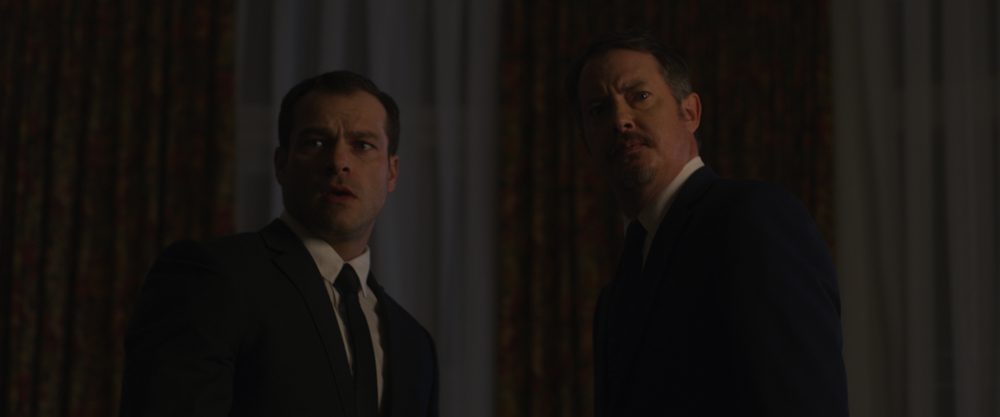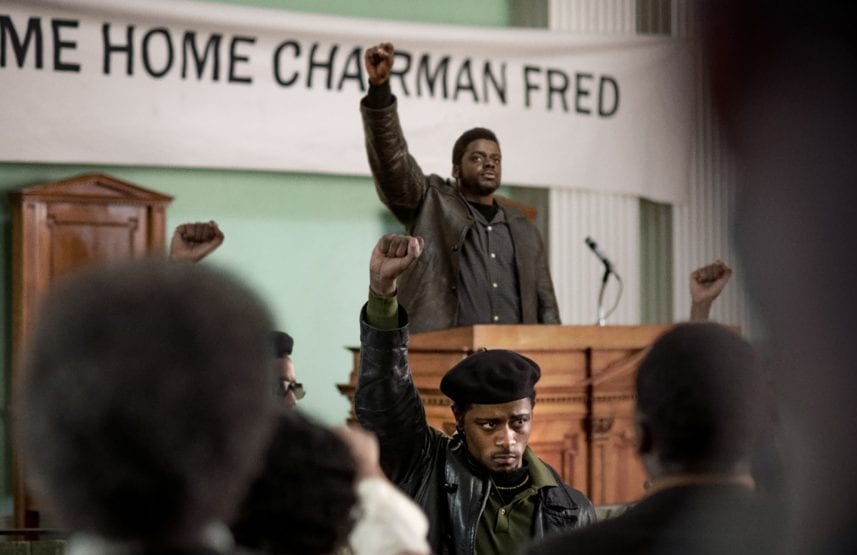
?You can murder a freedom fighter but you can?t murder freedom.? ? Fred Hammond (Daniel Kaluuya, Judas and the Black Messiah)
Set in the midst of the civil rights movement of the late 1960s, Judas and the Black Messiah tells the true story of William O?Neal (Lakeith Stanfield), a young thief arrested for stealing a car. Facing serious prison time, O?Neal is offered a plea deal by the FBI on the condition that he would be willing to operate as an informant in the Illinois chapter of the Black Panther party. Reluctantly accepting the role, O?Neal enlists with the Panthers where he meets their magnetic Chairman Fred Hampton (Daniel Kaluuya). As he moves higher up in the party?s ranks, O?Neal becomes increasingly torn between supporting a leader for whom he has gained respect and the FBI who continues to press him for information so they can bring Hampton down.
Though over fifty years ago, it goes without saying that the film has never felt more current. Coming at a time where police brutality and racial injustice are daily topics of conversation, the story of Fred Hampton resonates loudly within our current cultural climate. As the first major film from director Shaka King, Black Messiah tells the story of Hampton and O?Neal with focus and heat. Compelling from start to finish, King weaves a story that manages to portray the urgency of an era without being afraid to draw comparisons to today?s struggles for equality as well.
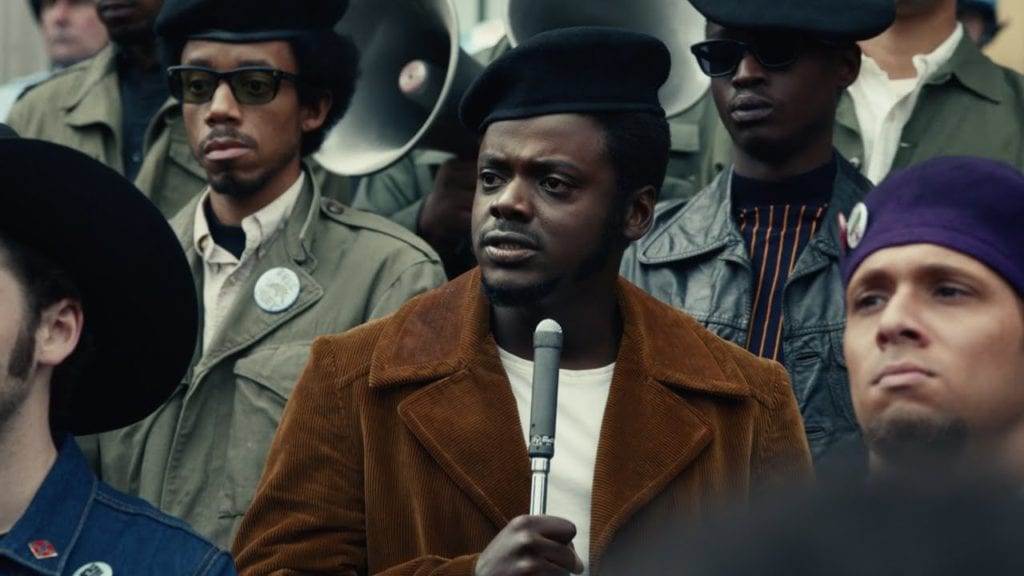
Featuring incredible performances from its entire cast, the film is anchored by its two primary stars. As the nervous outsider O?Neal, Stanfield brings the character to life as a man conflicted by his decisions. Though O?Neal?s actions are questionable at best, Stanfield shows grace to in his performance by portraying him as a man crushed under the weight of his own burdens. However, while Stanfield?s work is particularly solid, the film is stolen by Kaluuya who continues to display his talent and maturity as an actor. As the charismatic Hampton, Kaluuya fully invests his energy and charm into every scene. Whether he?s motivating the crowds or speaking softly to his loved ones, Kaluuya brings an intensity and fire to the role that is positively mesmerizing to watch onscreen and should be recognized as Oscar season draws nearer.
In many ways, it is appropriate that the film uses the title Judas and the Black Messiah. While the film never uses these nicknames throughout the film, Black Messiah absolutely takes on the structure of the Biblical narrative of Jesus and his betrayal at the hands of one of his disciples. Though history has often emphasized the violence of the era, this film portrays Hampton as a loving revolutionary who fights for the rights of all of the oppressed. Though absolutely prepared to engage in the fight where necessary, Black Messiah makes sure to point out that Hampton?s battle against the powers that be stems from a place of love. To him, the struggle for freedom is far larger than himself and he is willing to sacrifice whatever is necessary, even if he must put himself harm?s way in the process. (For example, when his followers attempt to hide him from danger, Hampton defiantly asks ?Is the party about me or is it about the people??)
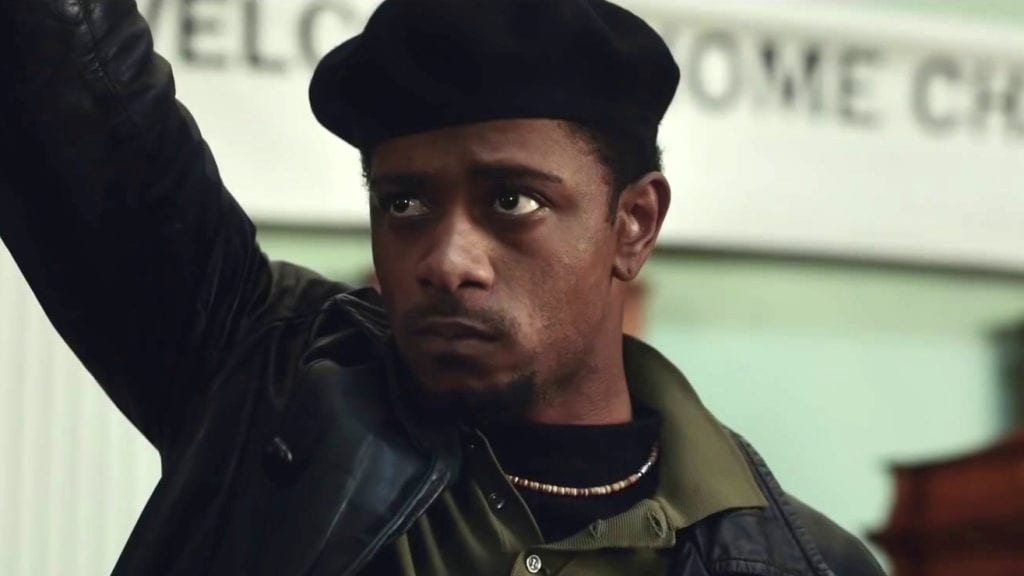
However, rather than merely deify Hampton and his work, this is a narrative that wants the audience to feel the weight of the story from the perspective of its ?Judas?, William O?Neal.?Caught between the FBI and the Panthers, O?Neal is a man torn between his own well-being and the good of the many. In this way,?Black Messiah?recognizes the importance of Hampton?s message yet also remains sympathetic to O?Neal?s struggle along the way. Whereas following Hampton may have made the story about one man?s struggle,?Black Messiah?s focus on O?Neal’s journey allows for the story to emphasize the struggle itself. In other words, the shift in perspective allows the film to become less about the life of a single person and more about deciding who you will follow in the midst of an ongoing war for justice.?
In light of this, it?s interesting to note that the film ends with footage of the real-life O?Neal who states that he ?chose a side?. Though clearly worn down by the weight of his decisions, his self-justification instead focuses on the fact that he took a position in the fight rather than simply sitting on the sidelines. In this way, O?Neal?s choice mirrors the message of Black Messiah by calling viewers to understand that they must still make decisions today about where they stand on issues of racial injustice. (After all, a person who chooses to stand with no particular ?side? is still making a choice.) While it may be sympathetic towards O?Neal, King?s script contains an urgency that reminds the viewer of the importance of choosing justice in the face of a culture that fights to hold on to the status quo.
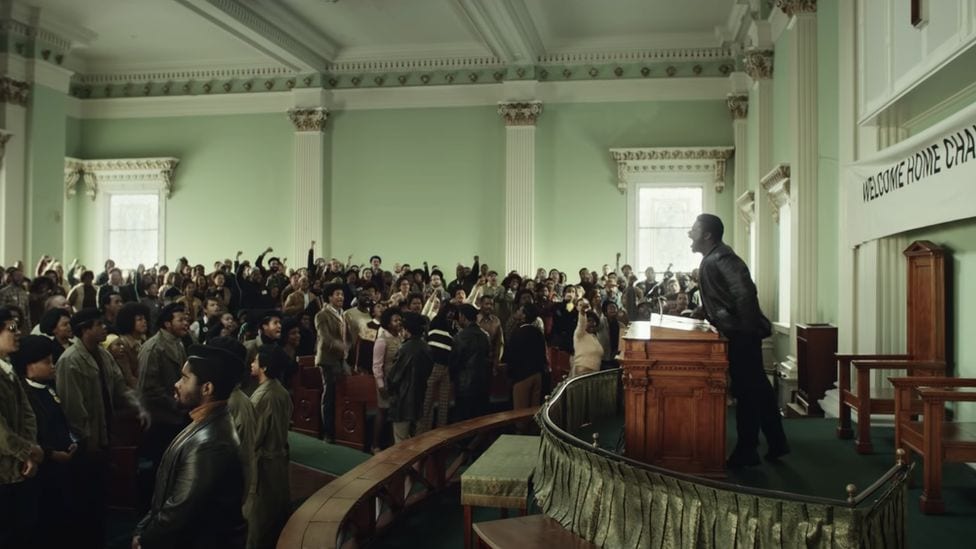
With its eyes firmly focused on freedom for all, Judas and the Black Messiah is a film that stays with you long after the credits roll. Featuring stellar work from its cast, the true power of Black Messiah though lies not the story of one man?s sacrifices for the sake of others but by the reality that the same fight still rages on to this day.
Judas and the Black Messiah?is available in theaters, on PVOD and on HBOMax on Friday, February 12th, 2021




